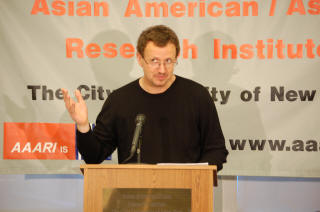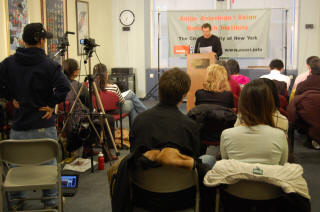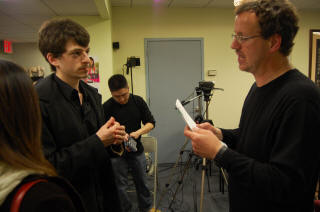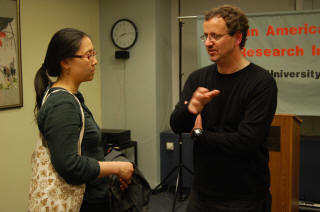
I argued in my dissertation that the ‘hard’ metaphysical problem of free will may be explained in simple, metaphysically ‘easy’ causal/functional terms as a product of the mechanics of metacognitive mental causation: There seems to be a causal connection between the extent to which the mind can “go meta-“, or loop back in reflectively on its own processes (e.g., think about its thoughts, prefer its desires, etc.), and self-regulation (autonomy, free will), evident in sensory-motor agility, biofeedback, and a host of related phenomena of an equally mundane nature.
The present research explores two new directions to this line of thought: (1) the extent to which mindfulness and other meditation practices increase self-regulation or autonomy, and (2) the extent to which one may develop a cogent version of a Buddhist theory of free will based on these ideas.

Recent brain research seeks to isolate neural pathways connected with negating one’s intention just before acting, and related phenomena connected with the idea of autonomy, in the hopes of specifying the actual circuitry of what would be called the causal/functional mechanics of free will. Recent mindfulness research seeks to quantify the extent to which such things as heightened attentional control co-vary with the quantity of exposure to mindfulness meditation.

Cognitive neuroscientists collaborating with the Dalai Lama’s monks (long-term practitioners of mindfulness) have discovered that the brains of these meditators are larger and more active in the areas researchers would expect to see them as such, based on the assumption that the meditators’ introspective self-reports about what is going on in their minds were true.
These findings corroborate the fact that long-term practitioners have developed greater metacognitive and other introspective abilities. I explore the extent to which these abilities may be construed as increases in autonomy, and thus as empirical evidence in support of a Buddhist theory of free will along metacognitive causal/functional lines.


